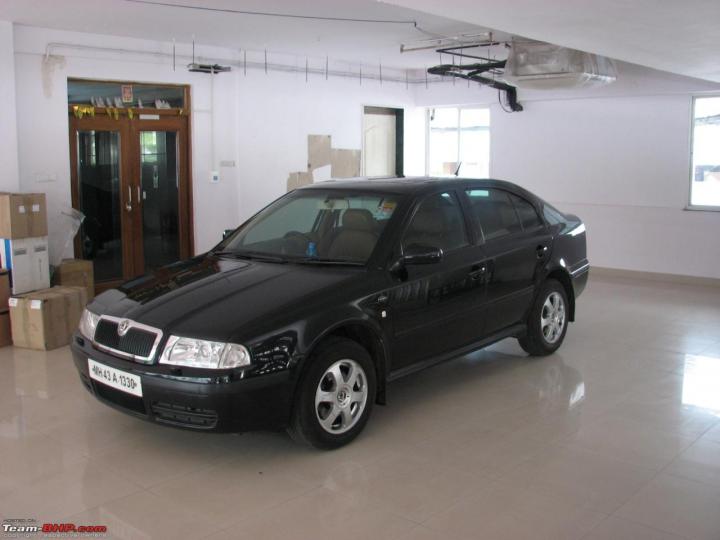News
Do today's cars feel as robust & long lasting as the ones sold before?
I used to own a Skoda Octavia 1.9 TDI 2007. It was built to last and everything you touch felt strong and robust.
BHPian Heisenberg_ad recently shard this with other enthusiasts.
I used to own a Skoda Octavia 1.9 TDI 2007.
It was built to last and everything you touch felt strong and robust. Skoda and VW were the brands that introduced mass market Indians to quality. They were go to brands for the ones who didn't want to spend on 3 big Germans but wanted 80% of the quality, luxury and driving pleasure. The only other car that felt equally good was my cousin's Innova Crysta in my opinion.
Sold my Octavia after using it for 10 years and 200k kms in 2017 and bought a Skoda Rapid 1.5 DSG.
Again, a very good car to drive and own. But I felt a bit of a drop in terms of longevity. Of course it was a segment down so it cant feel as good as the good old Octavia. But it didn't feel sturdy like the old Fabia.
Come 2022, and I test drove the Slavia and Kushaq. Great machines, amazing features, loved to drive. Very quick acceleration, etc. I don't know if I was nitpicking but somehow it didn't feel they were built to last.
Is this a result of cartelization? Like they did with light bulbs back in past? Are they deliberately not building long lasting products so people would buy again sooner? Here's a video which would explain cartelization.
Are there any solid and strong cars currently on sale like the ones in past?
If yes, please mention which ones.
Here's what BHPian ranjith_cbz had to say on the matter:
'Planned obsolescence' is already a feature built into in all the products we are buying right now and cars/automobiles are no exception. Even commercial and industrial heavy equipments are built for a specific usage period and cost factor. You might have heard it many a times that 'they aren't building like they used to'. Gone are the days where our kids can inherit some of our personal belongings like cars, bikes etc except our immovable assets.
This is not just due to cartelization but the general trend is consumerism where in we want the most stylish, trendy product at the cheapest price point, use/abuse it and move onto the next trendy thing. Customer don't want to see holding some outdated piece of product in this social media influenced times of ours. Corporates are just adopting, evolving and further propagating this trend.
Lately there has been some awareness to such hyper consumerism such as fast fashion, non-repairability of gadgets etc and their effect on global warming or climate change. Amidst all this there is a resurgence of certain product categories like 'buy it for life' and 'built like a tank' etc.
Here's what BHPian DCEite had to say on the matter:
Well, I wouldn't say that its exactly cartelization.
We must understand that car companies need to take care of profit margins and using lighter building materials (without compromising on safety aspect) , relatively cheaper (yet long lasting) pastics, parts which are sourced locally so as to minimize total cost to manufacture.
Remember a decade back Maruti used to make Ritz which was about 1000 kgs in weight which is similar to what today's TATA's 4 star rated Tigor Sedan weighs. The sheet metal felt to heavier than the current material the company uses in its new "Heartact" platform. However, the cars like Ritz/Swift a decade ago were still unsafe. Afterall, the safety or sturdiness is not only about how heavy the car is or "reassuring thud" the doors have, but a combination of factors like passive/active safety features, positioning of crumple zones, number of airbags etc.
Whereas the Skoda/VW group's 2.0 cars have proven to be as safe (perhaps more safe) than the 1.0 versions (a.la Polo) if we go purely by NCAP/GNCAP results, even thought the materials don't feel as solid and the cars don't carry that much weight.
And regarding engines, I think any mass market car currently on sale in India, can easily do 1.5 L - 2 L kms (petrol engined) easily and longevity is not an issue from the engine/gearbox and other mechanical/electrical component's perspective. Its just that the plastic parts and rusting which is major cause for concern, but if one is careful with regular maintenance it's not a big issue.
Here's what BHPian shankar.balan had to say on the matter:
Talking of ‘strong cars’ and ‘long lasting’ cars. There is plenty of evidence showing that modern cars at least from the 1980’s onwards tend to last for years and years and years even with relatively minimal care.
Most hill stations in India are rife with ancient but well kept Mahindras. Bombay was rife till recently with ancient but well kept Fiats till they were legislated out.
I think this whole ‘planned obsolescence’ and ‘replacement oriented economy’ is a wicked waste. And it seems to be the only Tune the Piper is playing now, to the exclusion of all other tunes. All in the false name of ‘emission control’.
Here's what BHPian DivyanshuDiv had to say on the matter:
I see things from another perspective, when we talk about robust long lasting cars. Of course, the essentials are already covered by other folks, so I'm adding my two cents.
The more of electronics, the obsolete the product becomes, eventually. Take an example of infotainment systems - for how long can they support Android/CarPlay/Bluetooth/WIFI's new versions ? And for how long the OEM will supply updates. Even retrofit will become quite difficult with new design languages(not talking about BMWs. You see, the new generation LED lights which have visibility issues for the masses and yet for many it is impossible to find a worthy upgrade. Then you have connected tech, which are still running with 4G, whereas 5G will be quite prominent in near future. And how could you forget the emission requirements, new engines, safety tech, and the list goes on and on. And what about the shift to EVs ?
So in today's world, robust and long lasting car is more of a myth, in a nut-shell. Of course, metal and material are the getting expensive and thin but that is how these brands are surviving in our market.
May be, the time for evolutions will cease, and a revolution will come with new machines running on next-generation fuels, and hot swap-able components. Until then, we have to wait for some robust and long lasting cars.
Here's what BHPian Kosfactor had to say on the matter:
Most cars made these days will last trouble free and with less maintenance for longer than what was the case earlier. Plenty of R&D, precise manufacturing of components etc.
Demand \ Supply situation will exist till the number of cars per citizen in the country reaches a certain level, right now its very low and growing, it will continue to grow for a long time - Mainstream cars will always keep their value as they are more useful and affordable to maintain.
Financially car is an expense, it will always make sense to keep the money than spend it - but that does not mean it is correct.
You end up in a nice expressway with a 120 kmph speed limit and then realize that your vehicle cannot keep up anymore. So there goes your interest in going anywhere - Now look at a car as a tool to achieve something, now you pay for the best tool you can afford and do not worry more about the economics of it.
Check out BHPian comments for more insights and information.



















